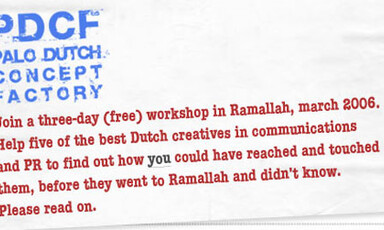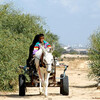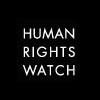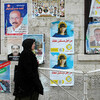
Dogs - Reconnaissance tool of the Israeli occupation
12 January 2006
The Israeli military is using dogs as a reconnaissance tool in its actions against Palestinian people in the Occupied Palestinian Territory, including the Balata refugee camp in Nablus. The dogs’ actions are controlled remotely through sophisticated technology; commands are issued by way of a radio transmitter. This evokes much fear and deepens the alienation of Palestinians. The way Israel is using dogs is yet another dehumanising step, taking place under the “cover” of war. The dogs follow the orders of their military masters. In no way should the international community permit the Israeli government to escape its responsibility for these barbaric practices in enforcing its brutal occupation of the Palestinian territories. Read more about Dogs - Reconnaissance tool of the Israeli occupation








